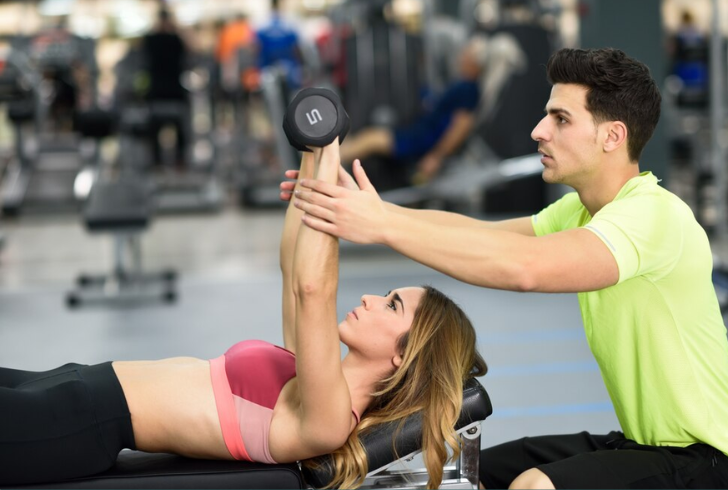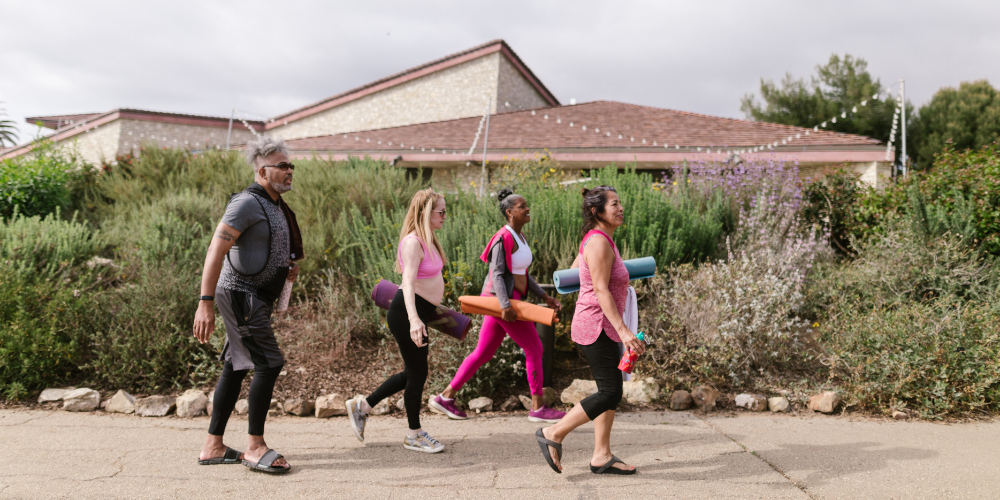Olympic athletes have access to some of the most advanced training methods in the world. However, the principles behind their routines aren’t reserved only for elite competitors. In fact, everyday fitness enthusiasts can benefit from the same strategies. By incorporating some Olympian training secrets, you can enhance your fitness routine, improve recovery, and work smarter, not harder. These tried-and-true methods have been honed over years of practice and can help anyone looking to take their health and fitness to the next level.
The Power of Having a Coach
One of the key components of Olympian training secrets is the role of a coach. No matter how talented or disciplined athletes are, they rely on coaches to push them beyond their limits and keep them on track. Coaches are not just there to provide technical expertise but also to hold athletes accountable and offer valuable feedback.

Freepik | Investing in a coach, whether for fitness or nutrition, can significantly enhance your results.
For non-Olympians, hiring a coach can be equally beneficial. Whether it's a personal trainer to help with workouts or a health coach to guide nutrition, having that external support can make all the difference. Coaches not only provide motivation and insights but also help create a personalized approach to fitness, ensuring safety and efficiency in every workout.
Building a Plan You Can Stick To
Olympians don’t succeed by chance. Their victories stem from meticulously crafted plans followed with patience and consistency. Each detail, from workouts to diet, is part of a bigger picture designed to achieve long-term success. Plans aren’t discarded at the first sign of difficulty; they’re adjusted to maintain momentum.
This approach applies to personal fitness goals as well. Set realistic objectives and break them into manageable steps. Trust the process, and remember that meaningful results take time. Revisiting and refining your strategy can help you avoid setbacks while keeping the ultimate goal in sight.
Prioritize Recovery for Optimal Results
Olympians train with intensity, but their recovery is just as important as the workouts themselves. In fact, recovery is when real progress happens. Training may be the stimulus for growth, but without proper rest, nutrition, and stress management, the body cannot fully repair and strengthen itself.
For non-athletes, recovery is just as vital. Our bodies face stress daily, from work pressures to physical exertion. However, without sufficient recovery, this stress can lead to burnout and injury. Recovery doesn’t just mean resting after a workout; it includes prioritizing sleep, managing stress, and fueling the body with the right nutrients. Small, consistent habits—like taking short breaks during work or practicing meditation—can greatly improve your energy and performance.
Focus on Quality, Not Quantity
Olympic athletes train with precision. They know that it's not about how long or how hard they train but about how strategically they train. Every workout is purposeful, targeting specific aspects of their performance. Olympians don’t spend hours mindlessly training—they focus on quality over quantity.
The same principle can be applied to everyday fitness routines. It’s easy to fall into the trap of thinking more is better, but the truth is that focused, quality workouts often provide more benefits in less time. If your schedule is tight, don't feel pressured to work out for hours. In just 20 to 30 minutes, you can achieve more with well-structured, intentional exercises than by spending hours at the gym.
Train With Purpose and Focus

Freepik | onlyyouqj |Align your workouts with your fitness objectives for optimal results.
One of the biggest training secrets of Olympians is their ability to maintain an unwavering focus on their goals. These athletes are always working with intention, making each session count toward a bigger picture. They know that success doesn’t come from random efforts; it comes from concentrated, focused actions.
For anyone pursuing fitness, training with purpose means aligning your workouts with specific goals—whether it’s improving endurance, building strength, or losing weight. Every session should have a clear focus and an end goal. This will not only keep you motivated but also make your efforts more effective. Don't get distracted by the latest fitness trends; stick to the plan that works best for you and keep pushing forward.
Practical Tips to Apply Olympian Training Secrets
1. Set Incremental Goals - Break larger ambitions into smaller steps to maintain motivation and track progress.
2. Monitor Progress - Keep a log of workouts, nutrition, and recovery habits to identify what works and where improvements are needed.
3. Prioritize Rest - Schedule rest days or lighter workouts to allow for recovery and prevent injuries.
4. Stay Flexible - Life happens—adjust your plan without abandoning it entirely.
By incorporating these Olympian training secrets into your routine, you can elevate your fitness journey with a structured, sustainable approach. The key lies in consistency, strategic planning, and a commitment to balancing effort with recovery. With these principles, achieving your fitness goals becomes not only possible but enjoyable.



